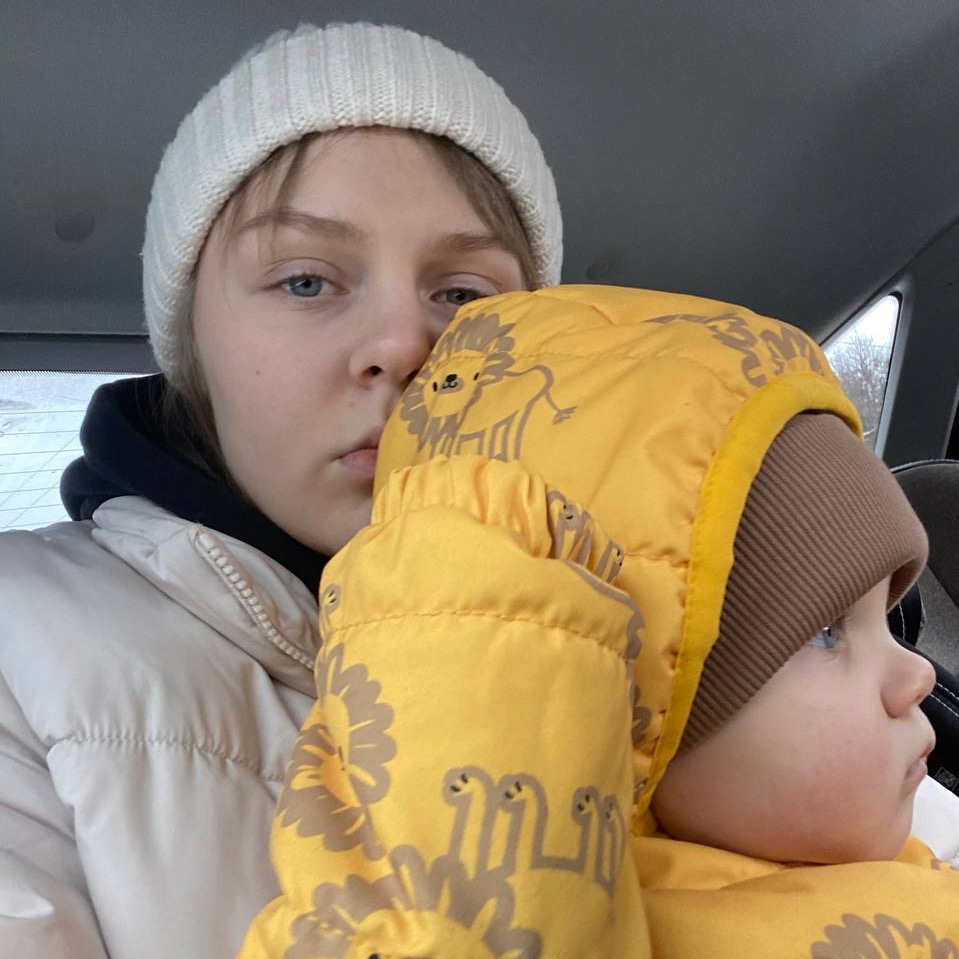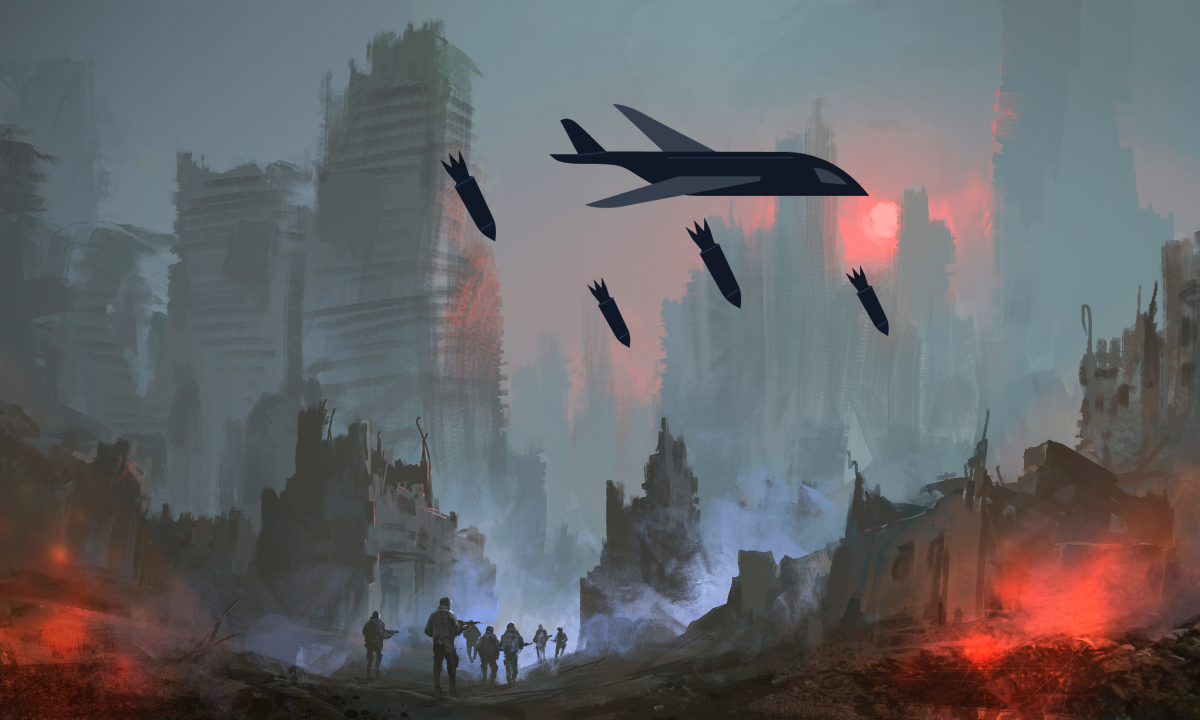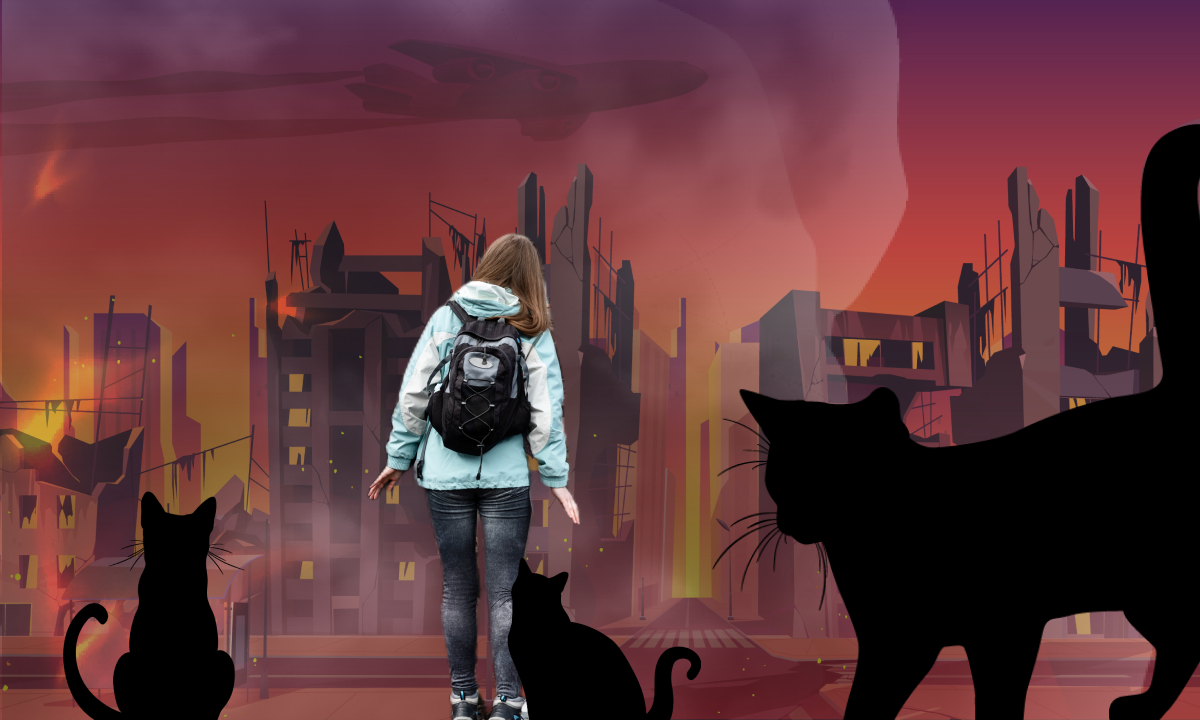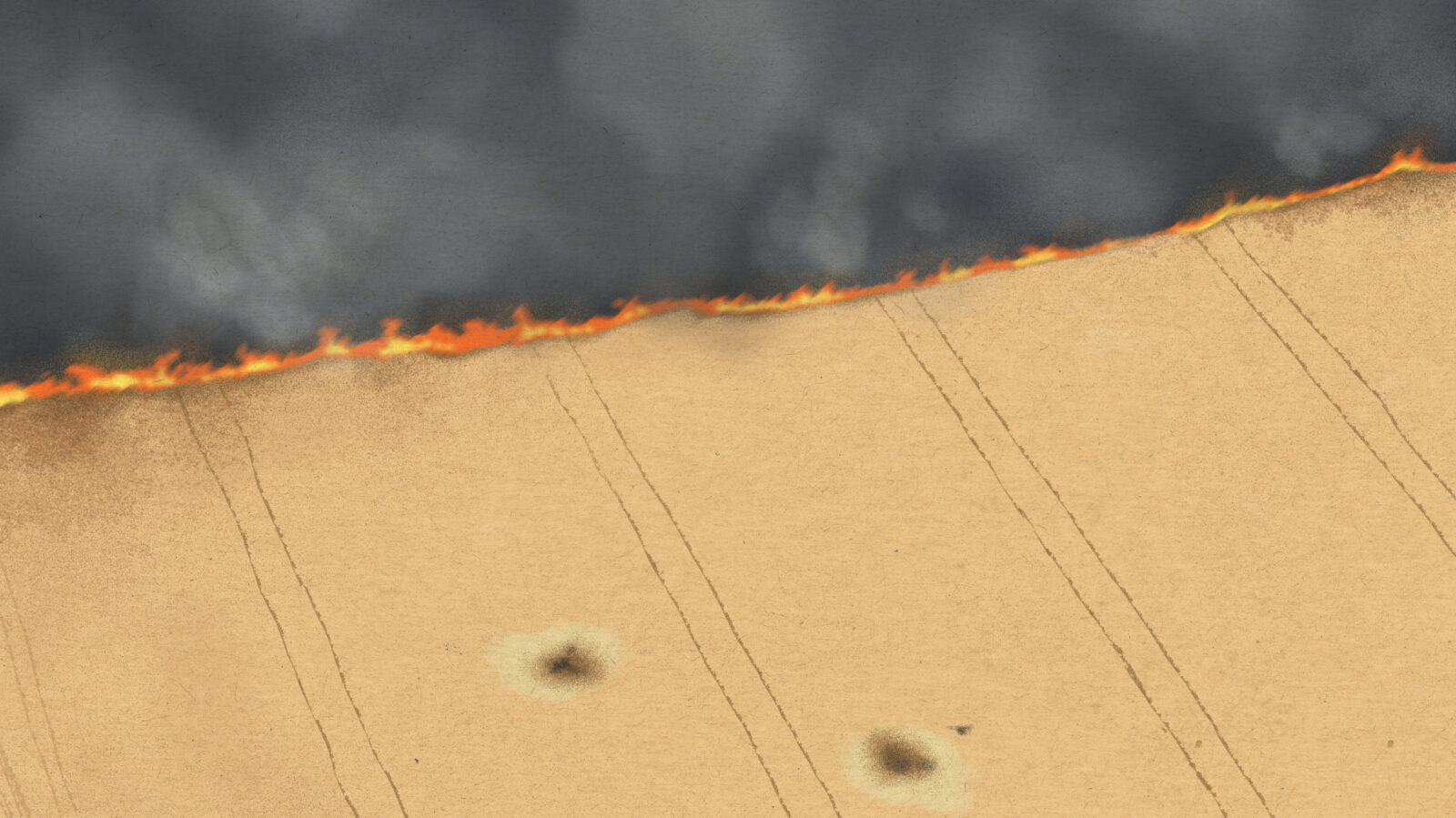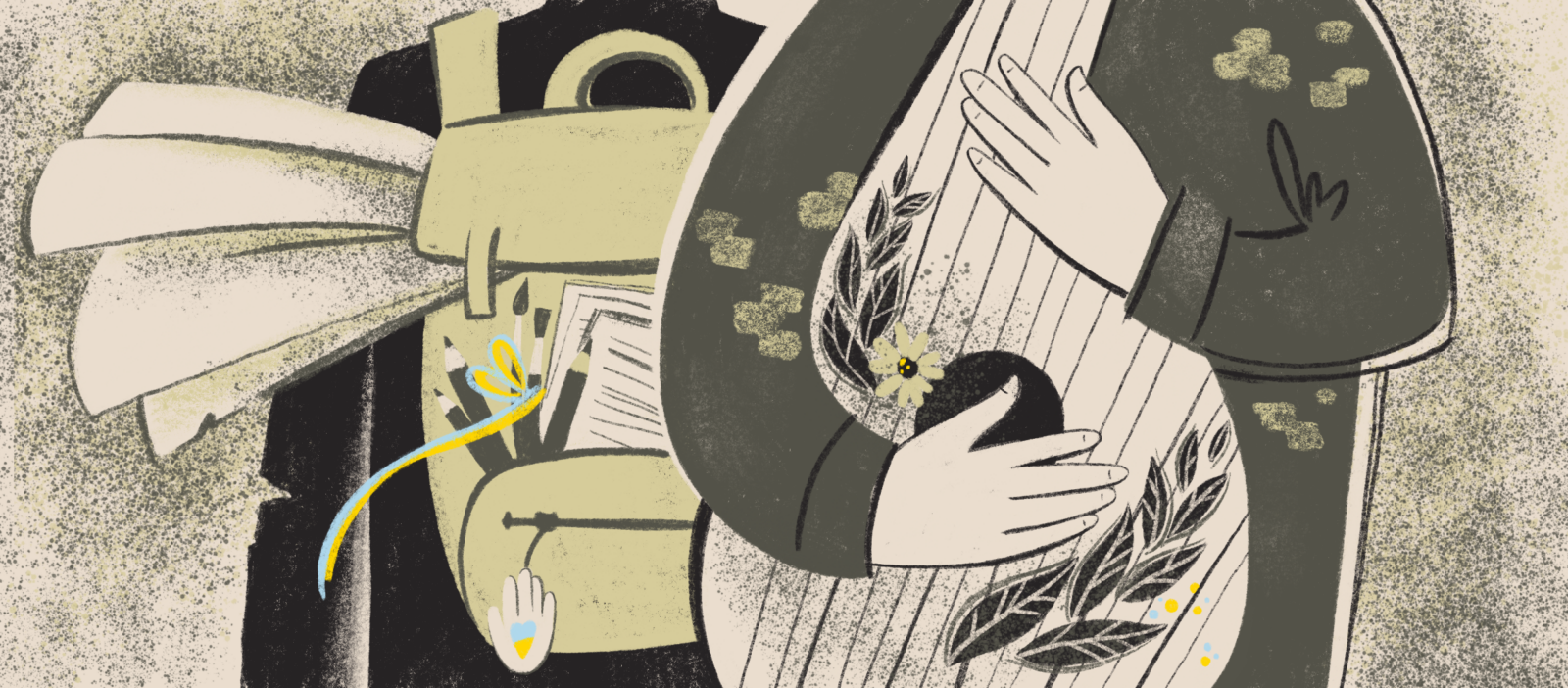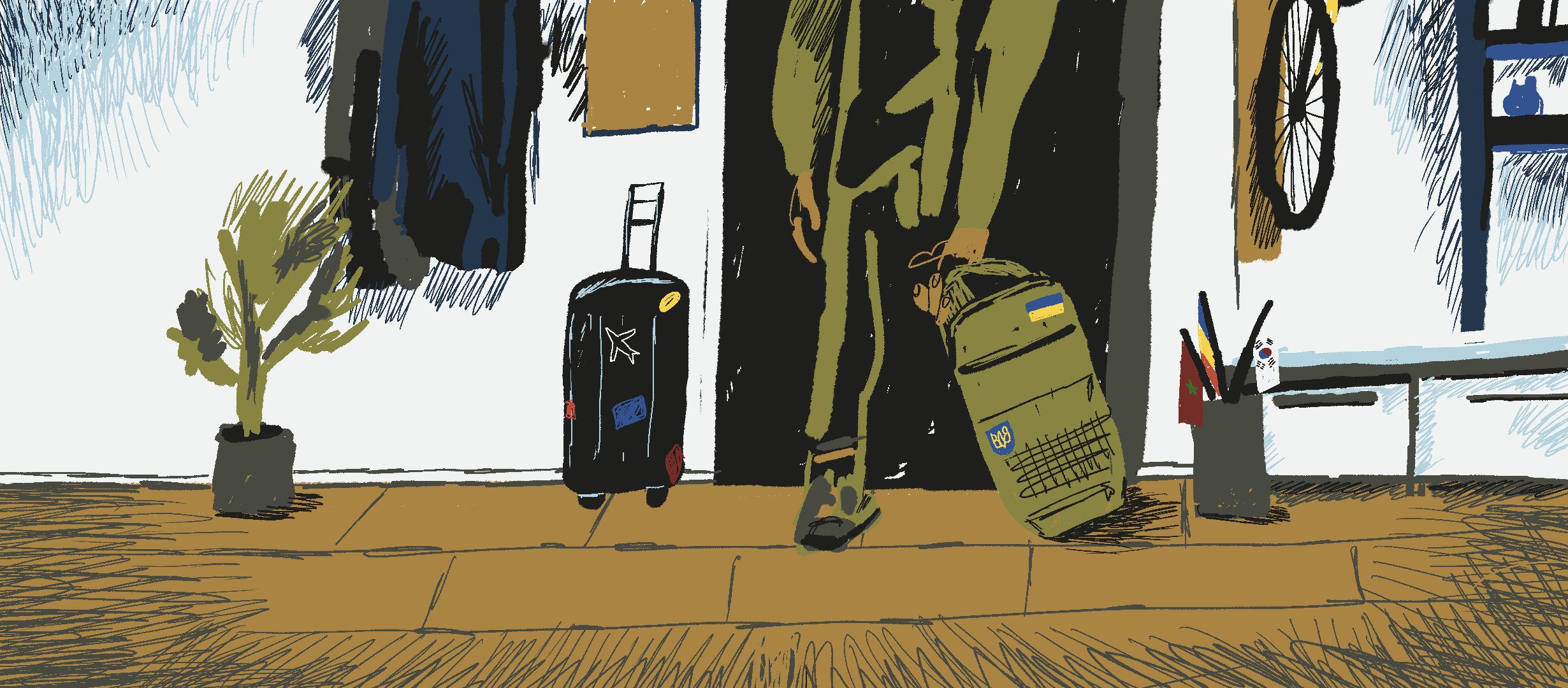Oleksandra Ovsiienko is on maternity leave, she is 23. She has been living in Kyiv for the last 8 years. A few weeks ago she finished an eyebrow makeup course. She planned to start her own business. “On February 24, I was going to buy an IKEA table, not hide in a bomb shelter.”
Even before the war, Oleksandra’s family had a “plan B” — to leave Kyiv. “We understood that if it starts, it would be dangerous to stay in the capital. On the 24th, they set off for western Ukraine: quickly packed and jumped into the car. But in three hours, we could not even go outside the city. We were almost out of fuel, so we had to turn around and go back to our apartment.”
The next day, Oleksandra and her family managed to leave Kyiv but in the opposite direction from the west. “When we were sitting in the shelter, our relatives from Sumy Oblast called. They were our family: my husband’s dad, his sister and her family, three grandmas and a grandpa. We were talking about blown-up bridges, but one seemed to have survived. We decided to use it. Actually, we did not have much choice. Explosions were unbearable, and we were not heroic enough to move through the entire Kyiv one more time.”
They took children’s food, toys, a first-aid kit and a hoodie for each of them. The girl says she was trembling all the way, and her little son was also anxious.
“I always ask my husband to drive slower but that time I kept begging, ‘Bohdan, please speed up!’ We were scared to death. An empty endless road and a fear of shelling… And then you run into a giant caravan of military vehicles and can’t tell if it’s theirs or ours…”
The couple is forced to move between relatives. “It is very hard to find a shelter, a safe place for our child. It is quiet in our town right now but the war is too close.” Despite all that, Oleksandra is glad they left Kyiv.
The woman says that she feels fear, anxiety, and anger. Her son is very nervous, he doesn’t want to be with anyone but his parents. “We are living on a groundhog day. Anxiety here, anxiety there, news every minute. We listen carefully for sirens. We are texting with family and every ‘Are you okay?’ means ‘I love you. I hope I’ll see you again.’”
Oleksandra tries to play more with her little son, to read, to do chores for distraction. She says that her usual routines are keeping her sane.
Most of all, the woman worries about her family: “I look at my son and think that we may not see him grow up. Or worse, he will not have time to grow up. Sometimes I feel powerless. I go online and see the photos of children from hospitals—it’s so painful and scary.”

